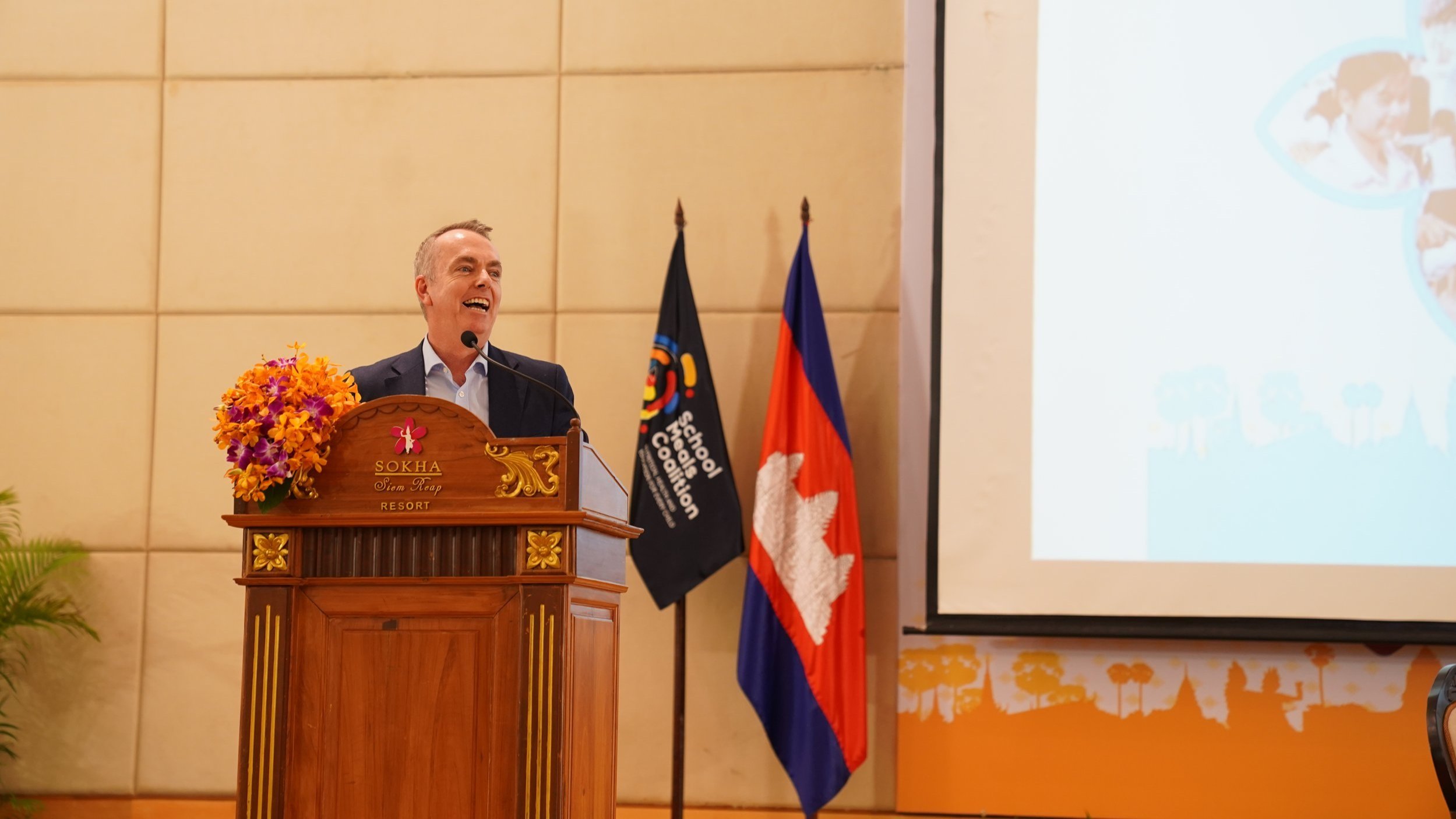Strong support for children’s education and nutrition in Southeast Asia
The Southeast Asia School Meals Coalition Summit co-hosted by the Ministry of Education, Youth and Sport of Cambodia, with the governments of the Philippines and the Republic of Korea, under the umbrella of the School Meals Coalition, brought together 130 delegates from seven countries in the region and 39 partner organizations.
IPNEd’s Director, Joseph Nhan-O’Reilly, attended the Summit where he led a stream of work on policy, legislation and governance for more and better school meals.
The summit underscored the transformative potential of school meal programmes to advance multiple Sustainable Development Goals. These include child nutrition, education, and local agriculture, while addressing pressing global challenges like climate change and food system resilience. Governments emphasized the importance of robust evidence to guide policymaking, such as impact evaluations, costing analyses, and return-on-investment studies, to strengthen advocacy and stimulate political will.
“While governments in Southeast Asia have made significant progress in developing school meal policies, allocating national budgets, and launching large-scale innovative programmes that leverage local food systems, further actions are needed to improve the quality and coverage to ensure that no child is left behind, “ said Joseph Nhan-O’Reilly.
“It was terrific to see the interests of governments in doing this and being able to share with the the value of engaging their parliaments and supporting the passage of legislation for school feeding.”
Hang Chuon Naron, Cambodia’s Deputy Prime Minister and Minister of Education, Youth and Sport, who hosted the event said: “In a world where education serves as the cornerstone for personal and societal progress, we must recognize that nourishment plays a critical role in this equation. School meals are more than just sustenance; they are a foundation for learning, growth, and transformation. When we prioritize the nutritional needs of our students, we are investing not only in their health but also in their cognitive development, academic performance, and overall potential.”
IPNEd’s ‘School meals: A toolkit for members of parliament’ was shared with participants at the event and we look forward to working with ministers, governments, members of parliaments and partners throughout the region to deliver on the promise of a healthy meal, for every child, at school, every day.



